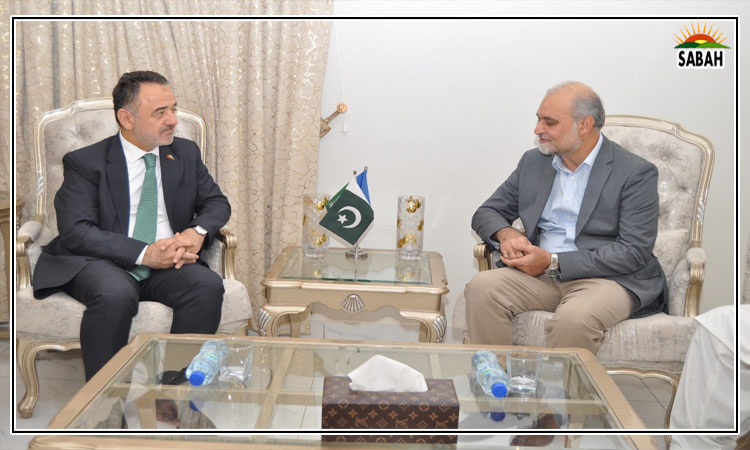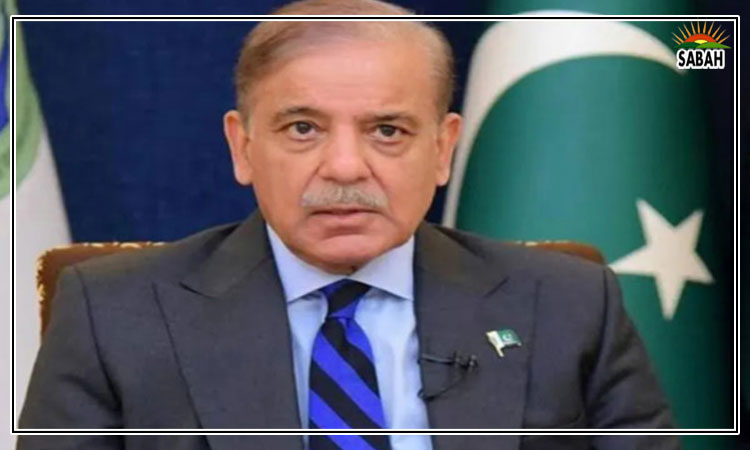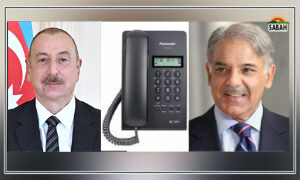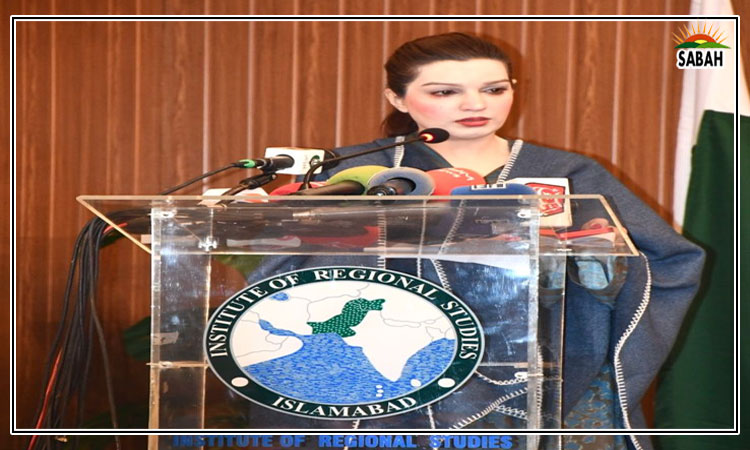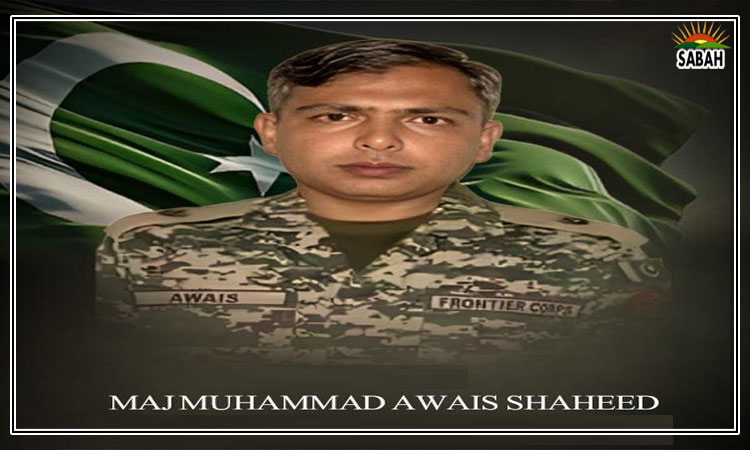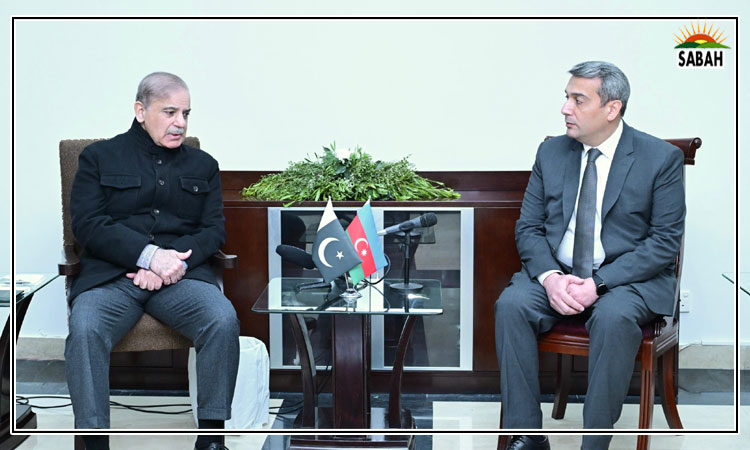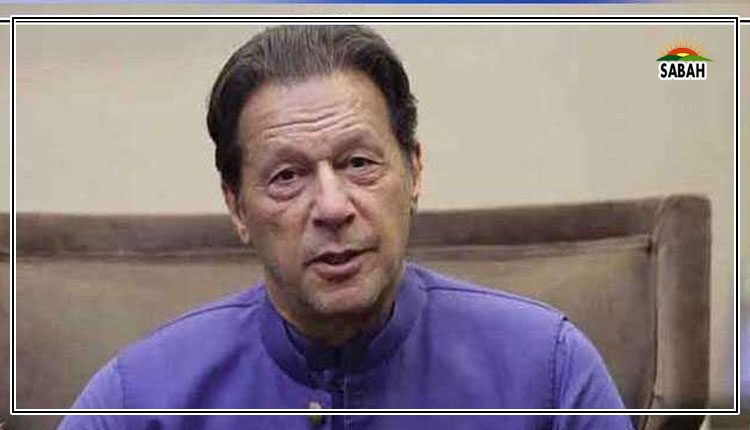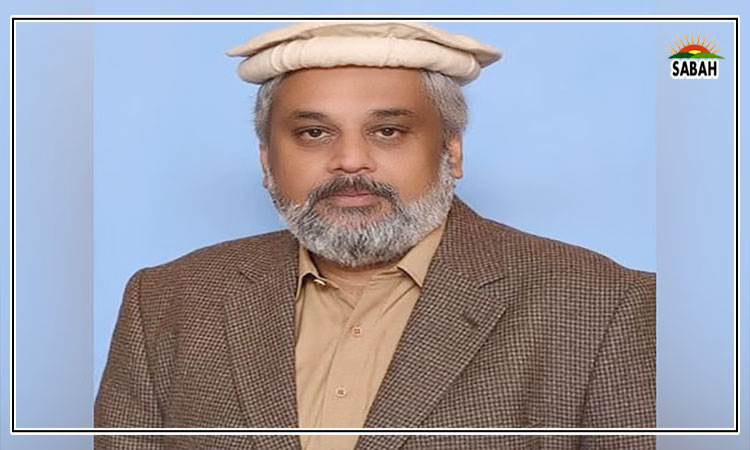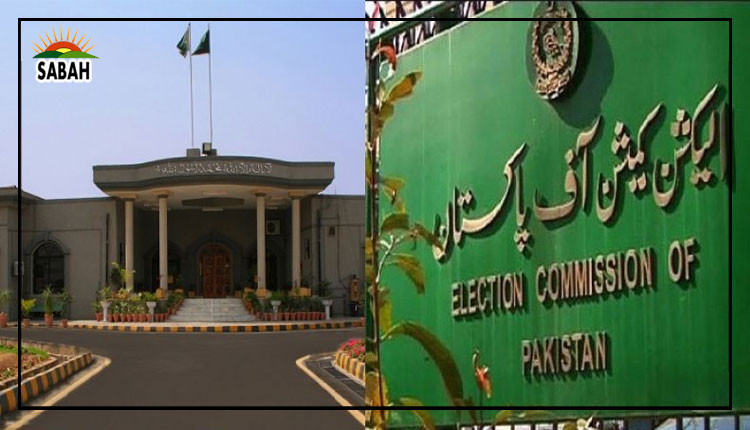Two-member IHC bench headed by CJ Athar Minallah suspends order to conclude PTI foreign funding case in 30 days
ISLAMABAD, April 25 (SABAH): Two-member bench of the Islamabad High Court (IHC) headed by Chief Justice Athar Minallah and Comprising Justice Babar Sattar on Monday suspended its earlier order directing the Election Commission of Pakistan (ECP) to decide the foreign funding case against the Pakistan Tehreek-i-Insaf (PTI) in 30 days.
The bench suspended the earlier order given by the court’s single-judge bench comprising Justice Mohsin Akhtar Kayani.
In his ruling earlier this month, Justice Kayani had dismissed PTI’s petition seeking to keep its foreign funding confidential terming it “non-maintainable” and “misconceived”. He had also rejected the request to prevent giving access of the case’s record to dissident PTI founding member Akbar Sher Babar and a request to remove him from the case proceedings.
The PTI had filed petitions on January 25 and 31 regarding the above two requests that were subsequently rejected by the ECP on March 15. The party had then filed a petition challenging the ECP’s decision to dismiss the pleas.
“The claim submitted by the petitioner (PTI) is not maintainable as petitioner itself is not able to demonstrate any of his legitimate rights when [it] itself is in agreement that respondent No 2 (Babar) can participate in the proceedings to the extent of information which he has provided to the scrutiny committee or the ECP, therefore, this petition is not based upon bona fide, rather filed with specific motive, just to stop respondent No 2 Akbar Sher Babar to participate in the proceedings, which has already been settled by this court in the previous proceedings,” the court order had said.
It had added that the instant writ petition was “misconceived” and dismissed it along with directing the ECP to decide the pending complaint against PTI within a “period of next 30 days by all means, after hearing the parties in accordance with law”.
Subsequently, PTI had filed an intra-court appeal last week challenging IHC’s decision. It had stated that the single-member bench held that the ECP was a constitutional entity by itself and the IHC had no supervisory jurisdiction over it.
The appeal had also argued that the order amounted to “intruding into the ECP’s domain”.
The PTI had expressed reservations over Justice Kayani’s remarks that “if any of the party funding had been received through prohibited sources, it will affect the status of such political party, including its chairman. Therefore, it is necessary to dig out the truth”.
According to the appeal, these observations were not warranted as the “judge was not mandated to use such harsh language to the utter disadvantage of the appellant”.
During the hearing on Monday, PTI counsel Shah Khawar Advocate argued that Justice Kiyani had used harsh language and phrases such as “face the music” in his order. He said that a single-judge bench didn’t have the power to pass such an order.
“Technically, this case doesn’t even fall under foreign funding. It falls under prohibited funding,” he contended.
The lawyer objected to the bench’s use of harsh terms such as “face the music”, stating that such non-parliamentary words were not the mandate of a single bench.
“The single bench used the word ‘foreign funding’ in the decision even though the case before the ECP is not of foreign funding but prohibited funding,” he added stating that it was not the prerogative of the bench to order the electoral watchdog to take a decision within 30 days.
CJ IHC Athar Minallah responded to the petitioner that the law permitted the ECP to scrutinize the accounts of political parties every year and if prohibited funding was found it would be confiscated.
The chief justice questioned that if the ECP scrutiny committee confirmed that Akbar S. Babar’s documents were not verifiable, what action is being taken now? “You are saying that the same action should be taken against all political parties.”
While the IHC has suspended the decision, the court has also directed 17 parties including PML-N and PPP, the ECP, Akbar S. Babar and other parties notices seeking a reply by May 17.
The foreign funding case is pending since November 14, 2014. The case was filed by Babar who had alleged serious financial irregularities in the PTI’s funding from Pakistan and abroad.
On January 4 this year, the ECP’s scrutiny committee, formed in March 2018 to examine the PTI’s foreign funding in one month, finally submitted its report after 95 hearings and nearly four years.
The report, based on eight volumes of record requisitioned through the State Bank of Pakistan, proved that the PTI leadership had committed gross violations of funding laws by allowing the collection of millions of dollars and billions of rupees without any source and details from foreigners, including Indian nationals and foreign companies.
The ECP heard the case on no less than 75 occasions and passed at least 21 orders directing the PTI to file documents and financial records, but there had been no response so far. “The PTI sought written and/or oral adjournment on various pretexts to delay the case,” the commission said.
Subsequently, in March, a delegation of the joint opposition comprising representatives from the PML-N, PPP, JUI-F, ANP and BNP called on Chief Election Commissioner (CEC) Sikandar Sultan Raja and submitted a letter demanding early conclusion of the case.
They stated that the foreign funding case is a matter of national security, upholding rule of law, democratic norms and neutrality and credibility of the ECP.
“There is no doubt that the PTI’s delaying tactics are meant to delay the final verdict, which is imminent, including that from the SBP. Now there is no moral or legal reason left to further delay the case,” the letter said.
It added that PTI was in contempt of the ECP for not filing its comments on the scrutiny committee’s report shared with it since January 4 despite repeated verbal commitments before the ECP. The last such commitment was made by the PTI on March 1 when it committed to submitting its comments on the scrutiny committee’s report in two days.
The opposition also demanded that the foreign funding case be concluded on March 15 and, if at all needed, the case be heard on a daily basis to ensure final judgment as soon as possible.



